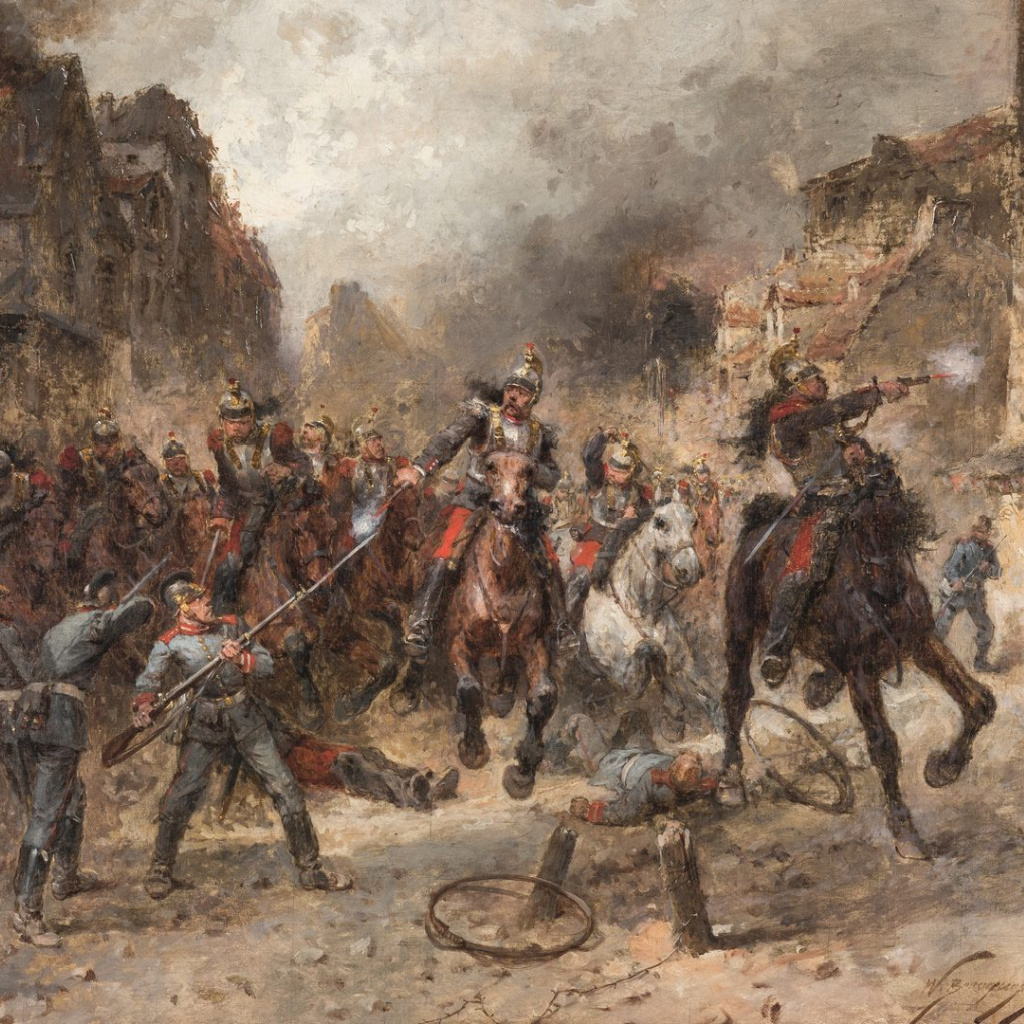“Imagination is more important than knowledge.”
One of the greatest “know-ers” of the last century, Albert Einstein, said that. Society ate it up wholesale—plastering it on bumper stickers and t-shirts and social media. Yet this is a truncation of Einstein’s idea, which can only be appreciated fully when consumed in whole:
Imagination is more important than knowledge. For knowledge is limited to all we now know and understand, while imagination embraces the entire world, and all there ever will be to know and understand.

“I never stop asking questions,” says Latter-day Saint environmentalist George Handley. “I don’t believe my loyalty to the body of the Church requires me to give up my search for truth. Quite the opposite.” He continues, “The greater the confidence I feel about the truthfulness of the restored gospel and my role in it, the freer my intellect feels to explore, ask questions, and turn over new soils.”
Much earlier, Brigham Young declared that the gospel “embraces all morality, all virtue, all light, all intelligence, all greatness, and all goodness”—inviting the Saints to “be willing to receive the truth, let it come from whom it may; no difference, not a particle.”
Squarely in line with this tradition, truth is ultimately always what I’m seeking too. That overrides all, including places my mind might wander, thanks to an imagination in overdrive since my birth. In my experience, when authoritative answers aren’t available, spiritual imagination often becomes indispensable. Reason has anchored me, but imagination has buoyed me.
Imagination as danger. Imagination often gets a bad rap in theology—mostly referenced in the Old Testament as a detriment to righteousness—e.g., the “imagination of man’s heart is evil,” that “vain” and “foolish” imaginations “plague” God’s children, etc. Although our scriptural canon generally reflects a dismal view of mortal imagination, I believe its necessity is indisputable.
For instance, Christianity is a faith tradition that demands buy-in to an imaginative standard beyond what secular minds can fathom. (An omnipotent God! A Virgin Birth! A Resurrection!) And the Latter-day Saint tradition arguably requires it, and then some. (A Vision! Angels! Gold plates!)
The way all this stretches human imagination has been well-acknowledged. The Apostle Paul acknowledges the gospel is so hard to believe that “the message of the cross” will be seen as “foolishness” by outside observers. And Joseph Smith admitted once, “If I had not experienced what I have, I would not have believed it myself.” Rather than a detriment to belief, perhaps a willingness to imagine is an intrinsic scaffolding for that very belief.
Even so, when we switch to various modes of criticism this imaginative standard is one I fear we too quickly abandon. Often, in our tremendous zeal to excavate the full truth of a matter, we leave our imaginative selves behind. We’re creative beings who tend to neglect our spiritual creativity.
We often seek finality and certainty, but we don’t always have vision.
Imagination as a catalyst for growth. Consider the changes happening within and without the institutional Church in the past few decades. We’ve been given declarations on gender and marriage, clarification on the divine feminine, and greater transparency on the history of our faith and faith leaders. We’ve got worshipers hungering for further light and knowledge, along with clarification and explanation of current light and knowledge (I’m among both these cohorts). So many of us have all sorts of growing pains as we really dig into our search for Truth, and while some seekers are thriving, others are undeniably hurting. It’s a confusing and exciting time for believers and semi-believers alike. In some senses, many of us are experiencing what feels like a spiritual adolescence.
Like any adolescence, this is a wild place to be. We’re filled with new passions and fervors and are routinely held captive by intense emotions (like indignation, confusion, and even betrayal) when all we really want is to think and respond logically, as we point to satisfying explanations of seemingly impossible questions and contradictions.
We think we know everything. At the same time, we’re also suddenly worried we know nothing. Infinitely further along in His spiritual development, God is not afraid of our most difficult challenges or questions.
I think God, in His heaven, is often delighted at this turn of events—since these challenging moments can denote major and necessary spiritual development.
Infinitely further along in His spiritual development, He is not afraid of our most difficult challenges or questions. He can handle our fists and our faithlessness. I’d go as far as to bet He’s excited at the zeal of our spiritual teenagerhood. He loves the grit of it. The angst. He loves our late-night talks, even the ones that end in tears and swearing. He’s excited we’re questioning because done in the right spirit, that means we’re learning.
Not to mention that teenagerhood is an essential step in becoming an adult. We can’t become fully developed until we’ve gone through the phases of ears too big and legs too long and voices shaky and uneven. This phase is vital and we shouldn’t be ashamed of our unease, anger, self-centeredness, and doubts.
But wait, is becoming teenagers and adults something God even wants? Didn’t Christ ask us to be like little children? What did He mean by that?
Imagination and humility. I believe He meant us to embody the humility and faith of a child, a willingness to ask questions meekly and receive answers in patience and good faith. There are many adult believers who still embody this childlike manner of faith. Perhaps it’s because they were given the spiritual gift of faith or the gift of quickly and easily believing the words of the prophets. Whatever the case may be, these are they who maintain a childlike faith to just believe. They are believers I admire and even envy, and when I highlight the value of spiritual development—even perhaps beyond a childlike view of doctrine—I do not mean at the expense of leaving this sort of childlike faith behind. On the contrary—we need to bring such trust and humility with us into adulthood, along with an imagination that will push us further along developmentally.
If childlike imagination is essential to our spiritual growth, so is teenage and adult criticism. Our church will not thrive without healthy critical thinking, as it’s often the catalyst to more deeply examine cultural traditions that we may need to move beyond.
Yes, we need critical thinkers. But we are in desperate need of creative thinkers, too. People who can sit with the tensions of seeming paradox, and who allow themselves to put in the work of imagining possibilities beyond ones they are more immediately comfortable with. People who will try to read between the lines—who will give ideas the benefit of the doubt before abandoning them wholesale. People who sit in dark theaters while credits scroll and ask themselves “What did that mean? What is the filmmaker trying to say?” We need people who read poetry. We need artists. Paradoxically, to arrive at this spiritual adulthood where we “put away childish things,” we first need the wonder of a child.
Thinking critically has always been vital for spiritual growth. Thinking imaginatively is where we need to go next.
The barriers to imagination. Yet our modern faith culture has a hard time with spiritual imagination. We’re a bit afraid of exploration, perhaps due to our well-intentioned desire to protect and to keep all worshippers “safely gathered in.” We have been commissioned to bring souls to Christ, and that’s a covenant we take seriously. We quickly refer to loved ones who have left church activity as “wandering” or “lost” (neglecting the many spiritual wanderers who have had story-changing divine encounters in their own wilderness). Amidst all this understandable desire to protect, we don’t always leave enough room for spiritual interpretation, even though our core theology rests on the rock of revelation.
At times, the correlative boundaries can feel smothering. Obviously, a degree of correlation is necessary in God’s restored gospel. We need a set doctrine that is taught consistently and universally so we don’t have regional splinter groups or people simply creating doctrine. The men and women who speak in General Conference also have a tough job to do, which is to provide general, broad counsel to a very diverse group of believers at various stages of faith development. I think we often fault certain messages for not providing the revelation we hope to hear, but fail to remember the incredibly wide audience listening in with varied concerns. These messages have to be general. They need to be simple and translatable. This is not the venue for speculation. And prophets are not in the business of speculating. As Dale G. Renlund noted, prophets “do not pronounce doctrines ‘fabricated of their own mind.’” Nor should they. They teach the gospel, plain and simple.
And consistently, many of us as children were taught gospel principles in this same simple way. Unfortunately, sometimes in the name of simplifying, what we learned was how to see the gospel in stark contrasts. Nuance is hard for children (and some adults). We photoshop the wings off of angels in our artwork because symbols are prone to misinterpretation. We don’t openly speak of things that feel overly complex, and we’re still sometimes afraid to discuss what feels like uncomfortable history. Our Primary dichotomies are helpful with young brains but as we grow into adulthood this kind of black-and-white thinking doesn’t always serve us anymore. We need correlation to serve us, instead of constraining us. We need it to give us the foundation to build on, but then perhaps we need to do the proactive work of building something more custom, a vibrant faith space that gives us room to explore our individual questions and destinies.
Instead of franchised faith, we need to recognize the highly creative and personal faith God truly has in mind for us in the restored gospel.
Imagination to navigate tricky terrain. There are many intelligent adults (who I highly respect), whose faith is so simple and primary-level that when they encounter challenges to their testimony learning something seemingly unsavory about a prophet or practice (or hey, the entire Old Testament!), they begin to question if anything they were taught can be true. Trust lost is very hard to re-earn.
The contradiction here is that our doctrine often involves natural tensions between ideas that appear to be in conflict. And prevalent symbols. In our now spiritual adolescence, our faith can no longer be handed to us in a kind of neatly packaged literalism. Our theologies are also very often illogical, or more accurately, logical beyond our mortal understanding. We’ve all got at least one thing we can’t square. The tiniest rock in our spiritual shoes.
Start where you want. Start with the Virgin Birth. Start with the Flood. Start with God Himself. God Herself. Start with the Thing that just doesn’t compute. Read everything you can about it, from reputable and various sources. Then turn on your imaginative filter, and re-examine it through that “what-if” lens. The sky’s the limit this time around. Let your mind really explore … go wild.
My husband and I are watching a very complicated post-apocalyptic television series right now, created by some mega-talented writers. We are enchanted by the story of this new world we are watching develop in front of our eyes. We have no idea what’s going to happen. I love it.
Sometimes I pause the show mid-episode. “I can write out 100 storylines for what happens next,” I tell my husband.
I wonder which one the author has written.
It’s a fun, imaginative exercise for us.
Yet it’s a soul-wrenching, expansive exercise when applied to my spiritual and theological questions.
I wonder which story the Author has written.
Take your hot topic. Your dealbreaker.
Mine, for a while, was polygamy.
Why, Lord, did you ask your Old Testament and modern-day prophets to practice polygamy? Why did you allow it? Did you allow it? Did you sanction it?
Then I commence with this creative exercise: I write (quickly, in my head), a half-dozen reasons why polygamy was wrong, abhorrent, and why it wasn’t sanctioned by God. Then, I compose a half dozen reasons why polygamy was right at one particular time, and why it would make sense. (I was on the debate team in high school, so it’s possible I benefit from the skill of arguing both positions).
If I let myself wander, I can imagine explanations for both. I can “make it work,” even if I’m not sure which answer is the true one. Clearly, truth still matters, but until I know the full truth I sometimes operate in a nuanced space with the assumption that there exists a reason for the confusing issue that is logical (even if it’s one my internal debating didn’t surmise).
And that’s really the larger point. If I, someone who has barely cracked open the door to my spiritual adulthood, could posit, could create—could “make it work,” how many more storylines could Heavenly Beings with unparalleled wisdom compose?
My faithful speculation could see dozens of possibilities—enough to save and satiate my faith—but even so, I also knew I could also only see a fraction of all possibilities. I too “see through a glass, darkly.”
Thus, “faith gives us access to a broader reality,” Terryl Givens said when speaking about similar themes in a February 2022 Faith Matters podcast. (He could have said the same thing about imagination.)
Faith has never been limiting to me, it’s always been capacious. My own reality has been enlarged, and my spiritual universe expanded and expanding, because of this exercise of faith. And because of its attendant curiosity.
Idealogues and imagination. Curiosity and humility are overlapping practices. You can’t be curious about things if you insist there’s nothing more to learn and understand. You have to be open to learning. But pick your sources carefully. Those who may have “illuminating” or faith-shattering “answers” might themselves be engaged in earnest and ultimately unhealthy spiritual speculation (or something more sinister at times). Where it gets dangerous is when they name their speculation Truth. So go ahead, imagine possibilities, but realize that’s what others, including committed detractors, are also doing. Recognize that. Criticize, but not at the expense of creating.
This practice, then, comes with caveats. Our ability to make sense of the world through our imaginative capabilities means that maybe how we justify things to ourselves is just that—justification. (Is a fictional explanation better or worse than no explanation at all?) Our sincere speculation might create scenarios that many times aren’t true. We’ll talk ourselves into an answer that feels good to us but maybe is still simply false. At times we risk making God into our image. So as we work on fostering a more creative faith, we need to name our imaginations as just that.
I remember picking up Richard Dawkins’ book The God Delusion when I was in college. I read it in one sitting in a leather easy chair at Borders Books. I found it highly interesting. I wasn’t offended by it. But I did recognize Dawkins’ assertions for a universe without a God just as speculative as faithful arguments that there was one. His logic and arguments were far from waterproof, going something like: “if A = B, then B = C, C = D, and therefore there is no God.” All he said was highly speculative and incredibly assumptive. He had many loopholes, this man of reason.
In recent years I’ve also seen imaginative machinations on the nature of God, and the truthfulness of scripture. Often they are incredibly interesting theories. But while hiding under the sheen of logic, they are actually also cloaked in a different flavor of speculation. What seems improbable and impossible to refute ends up being just different guesses. They’re smart guesses, they seem possible and some even likely, but they’re also still guesses.
Dawkins, fascinatingly and tellingly, later acknowledged he could in fact believe in a God if God were some sort of super-evolved being, “a deistic god, a sort of god of the physicist, a god … who devised the laws of physics, god the mathematician, god who put together the cosmos in the first place.”Dawkins (unaware he was describing well a Latter-day Saint understanding of God) later rescinded this imaginative twist in his philosophies and went back to his hard-line of God as sheer fantasy.
The imagination of Joseph Smith You can’t talk about Latter-day Saint gospel-related imagination without talking about Joseph Smith. I can hear the arguments forming. “Of course, Joseph Smith was an imaginative thinker—he imagined the entire Book of Mormon!”
That is one way you could write it. I can compose an argument for you right now: “Joseph Smith was a fanciful, uneducated farm boy who simply created an entire book of scripture.” There are plenty of storylines you can choose from to argue that position. There are publications that make that seem like irrefutable proof. But, there are also plenty of storylines in support of the book being divinely given to him.
From his youth, it’s true that Joseph Smith was very comfortable in the realm of imagination. He dabbled in folk magic and divining rods, as was more commonplace in his day. These facts from his childhood can be in fact so surprising to some that they can no longer hold them and their faith at the same time. Some modern critics cite religion as too fantastic to sustain belief, yet ironically turn to a whole host of spiritual substitutions, like eco-spiritualism, sage burning, and even moon worship. (See ya, make-believe rituals! I’m off to a tarot reading!) For all our efforts to rid ourselves of religion, and spiritual imagination, as humans we just can’t seem to shake it entirely. Our souls crave this sort of connection to the cosmos.
Did God need an imaginative, creative, storytelling man to fulfill his purposes? Or did God simply work with one? I personally believe that God needs His children to be imaginative, and that imagination co-exists naturally with rational thinking. There are so many possibilities from a God of endless possibility.
Amidst the tragedies and setbacks of the early church, it would have taken profound imagination to envision what this small organization would one day become. As Joseph once told the Saints, “You know no more concerning the destinies of this Church and kingdom than a babe upon its mother’s lap. You don’t comprehend it.” What modern myopia limits our vision of a future not yet blossomed?”
Imagining the ripened fruit. In the end, faith expands possibility, fear narrows it.
And that’s perhaps why God needs our creative faith. Abraham was an imaginative and bold negotiator, trying to save a fallen city. Lehi was a “visionary man,” and was ultimately attacked in similar ways as Joseph Smith for that very reason. The Brother of Jared imaginatively solved the problem of dark boats by bringing rocks for the Lord to touch and make light. We’re creative beings, designed after the image of male and female Creators. We’ve all got at least one thing we can’t square. The tiniest rock in our spiritual shoes.
Is the entire idea of God fiction? That’s a possibility, sure. Is God real? Also possible. I can’t “prove” to you through hard evidence that God is real any more than Dawkins can “prove” that He isn’t. I can’t “prove” to you through any kind of persuasion, or sophistry, that my faith tradition contains unique, additive truths to mainline Christianity. How then, if at root we’re all essentially imaginers, can we move to become unmovable believers?
Perhaps because of another kind of evidence. “Do men gather grapes of thorns, or figs of thistles?” Jesus asked the Pharisees when accused of performing miracles by the power of the devil. He continued:
Even so every good tree bringeth forth good fruits; but a corrupt tree bringeth forth evil fruit. A good tree cannot bring forth evil fruit; neither can a corrupt tree bring forth good fruit. Wherefore by their fruits ye shall know them.
I know the fruit is good because I have tasted it. I know God is good because I have seen Creation.
Nevertheless, there are many for whom the taste is not good. They claim the proof is in the pudding, and in their own experience, they insist the fruit injures and is rotten. My sympathies are with them and I acknowledge their struggles and respect their intentions. My heart aches for them.
It’s maddening to be so patient sometimes, but I truly believe the Truth will be manifest, and in a way that includes all God’s children. I don’t think the fruit is all rotten. I think some of it just isn’t ripe.
“Are we a church of continuing revelation or not? Are the heavens open or not?” asks scholar Rachel Hunt Steenblik. “I believe we are. I believe they are.”
Maybe certain things in the gospel don’t taste good to everyone because they have been picked prematurely. A peach isn’t a bad peach just because it isn’t ripe, it’s just a peach that requires patience.
There’s been a lot of divine discontent going around about the place of marginalized groups in the plan of salvation. And though imagination and speculation are necessary, they alone don’t always bring to pass sweeping institutional change that is sometimes hoped for. Imagining (or appreciating) a theology that embraces all of God’s children regardless of sexual orientation or gender or race may seem simple enough. Imagining an institution where all members routinely do the same requires some real brainwork.
This practice is not always an easy endeavor. But it’s worth the effort.
This same pain point exists for the existence and role of female deity. Some of us lack the authoritative, institutional revelation we are hungry for, so we are left to imagine the natural possibilities of what a Heavenly Mother is. In doing so, our reason is tested but our faith is expanded. There are numerous storylines, many possibilities, and many righteous imaginations about Her that bring peace. “Reason cannot replace revelation,” Elder Renlund reminds us, but knowing there are many stunning possibilities that exist can bring us peace in the interim. Possibility can help us stay.
It becomes clear there do exist ways to make these difficult topics legitimately “work” individually (while perhaps awaiting more institutionally)—for us to retain our faith even when nothing has been prophetically revealed.
In this way, our imagination can save our faith, and even add to it, if we remember to label it appropriately—as a glorious, divine Possibility.
Imagining more than the shelf. For years, some of us have turned our minds away from the uncomfortable bits of scripture and history and concluded that we’d just have to be “put on our spiritual shelf.” I’d like to propose that might not be the solution. Imagination, wonder, and pondering might be a better way forward. Instead of filling our spiritual shelves more, it might be the right time to declutter the shelf. To Kondo the heck out of that thing. Maybe it’s time we dig deep, especially when it comes to the things that really unsettle us. Now is the time to start asking about the shelved items. It’s time to bring them down to daylight, dust them off, and seek further understanding.
“Religion is a call for changing the world,” says Handley, “and so it must lead its adherents to some kind of urgency about effectuating that change.”
Let’s do that under the faithful lens of creative possibility.

Jesus Christ knew this more than anyone. In the synoptic gospels, He communicated a truth that buoyed me up when I felt disheartened with a seeming lack of institutional progression or clarity: “With men this is impossible, but with God all things are possible.” I, like the poets before me, “dwell in possibility.”
The next time someone asks me, in light of seeming anachronisms and logical fallacies, how I can still “stay,” I think this time I’ll answer “Because of my imagination. And because of God’s.”
















